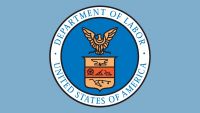Understanding Health Care Reform
The Patient Protection and Affordable Care Act, as amended by the Health Care and Education Affordability Reconciliation Act (the “Act”) requires significant changes to employer-sponsored group health plans. Below are highlights of the legislation for employers.
Changes effective in 2010 or 2011
Reinsurance for Early RetireesThe Act requires the establishment of a temporary reinsurance program to provide a reimbursement to participating employer-sponsored plans for a portion of the cost of providing health insurance to retirees between the ages of 55 and 64.
Medicare Part D Retiree Drug Subsidy Becomes Taxable in 2013
The Retiree Drug Subsidy will be lost in 2013, which may have an immediate impact on employers’ financial statements.
Nursing Mothers Protections
The Act requires employers to provide reasonable breaks to nursing mothers to express milk for up to one year after the birth of their child.
Coverage for Children up to Age 26
Group health plans and health insurance issuers offering dependent coverage must offer coverage to employees’ children up to age 26. The children do not have to qualify as tax dependents and can be married. Through 2013, existing plans need only extend coverage to children who are not eligible for other employer health coverage.
Pre-Existing Condition Exclusions on Children under Age 19
Plans must eliminate pre-existing condition exclusions on children under age 19.
No Lifetime or Annual Limits on the Dollar Value of Coverage
Group health plans generally cannot impose lifetime or annual limits on the dollar value of coverage for certain essential health benefits. Limited annual limits may be allowed through regulations until 2014.
Prohibition of Discrimination Based on Salary
New insured health plans may not discriminate in favor of highly compensated individuals.
Tax Credit for Small-Business Employee Health Coverage
Effective Jan. 1, 2010, certain small businesses and eligible tax-exempt employers required to make employer contributions to the costs of employee health benefits will be eligible for small business tax credits to offset the cost of employee health insurance. For years 2010 through 2013, employers may receive tax credits of up to 35 percent (25 percent for tax-exempt employers) of the lesser of: (1) the employer contributions for premiums paid for health insurance coverage; or (2) the average premium for the small group market in the employer’s state.
Changes effective in 2011
Over-the-Counter DrugsThe costs of nonprescription drugs may not be reimbursed by Health FSAs, HRAs, and HSAs after 2010.
W-2 Reporting of Health Care Coverage
Employers will be required to disclose the aggregate cost of employer sponsored health care coverage on employees’ 2011 W-2 tax forms.
Simple Cafeteria Plans for Small Businesses
The Act creates “simple cafeteria plans” for employers with 100 or fewer employees, effective Jan. 1, 2011.
Changes effective in 2012
DisclosureAs of March 23, 2012, insurance issuers and self-insured plan sponsors or administrators must provide coverage summaries before enrollment and re-enrollment. Plan changes will require 60-day advance notice.
1099 Reporting of Other Income
The Act expands the 1099 reporting requirements to include corporations.
Changes effective in 2013
FSA Reimbursement CapFor plan years beginning after Dec. 31, 2012, the maximum annual employee contribution to a health FSA is $2,500.
Legislative changes effective in 2014
Play or PayEffective any month beginning on or after Jan. 1, 2014, an employer with more than 50 employees who offers health benefits, but has at least one full-time employee enrolled in government subsidized coverage, must pay a monthly penalty equal to the lesser of $250 for each employee (full-time or part-time) receiving the subsidy, or $167 per full-time employee. An employer who does not offer health insurance to employees would face a monthly fine of $167 for each full-time employee who qualifies for subsidized coverage through an exchange. To calculate the fine, the Act subtracts 30 employees from the actual number of people employed at a firm.
Pre-Existing Condition Exclusions Prohibited
No pre-existing condition exclusions will be allowed after 2013.
Legislative changes effective in 2018
Excise Tax on High Cost Employer Health Plans (“Cadillac Plans”)Effective Jan. 1, 2018, the Act imposes a non-deductible 40 percent excise tax on the “excess benefit” provided in any month under any employer-sponsored health plan. Generally, an “excess benefit” will exist in 2018 if the cost of the benefit, on an annual basis, exceeds $10,200 for individuals or $27,500 for families.
Originally published in Masonry magazine.
About the Author
Kate Marriott serves as chair of the Employee Benefits Section for Williams Mullen. Her practice focuses on all areas of employee benefits, including stock-based compensation, executive and incentive compensation arrangements, pension and welfare plans for private and tax-exempt employers, ESOPs for public and privately-held companies, and ERISA issues arising in mergers and acquisitions.
For more information, contact Catherine M. Marriott with Williams Mullen, 804-783-6901 or kmarriott@williamsmullen.com.


















